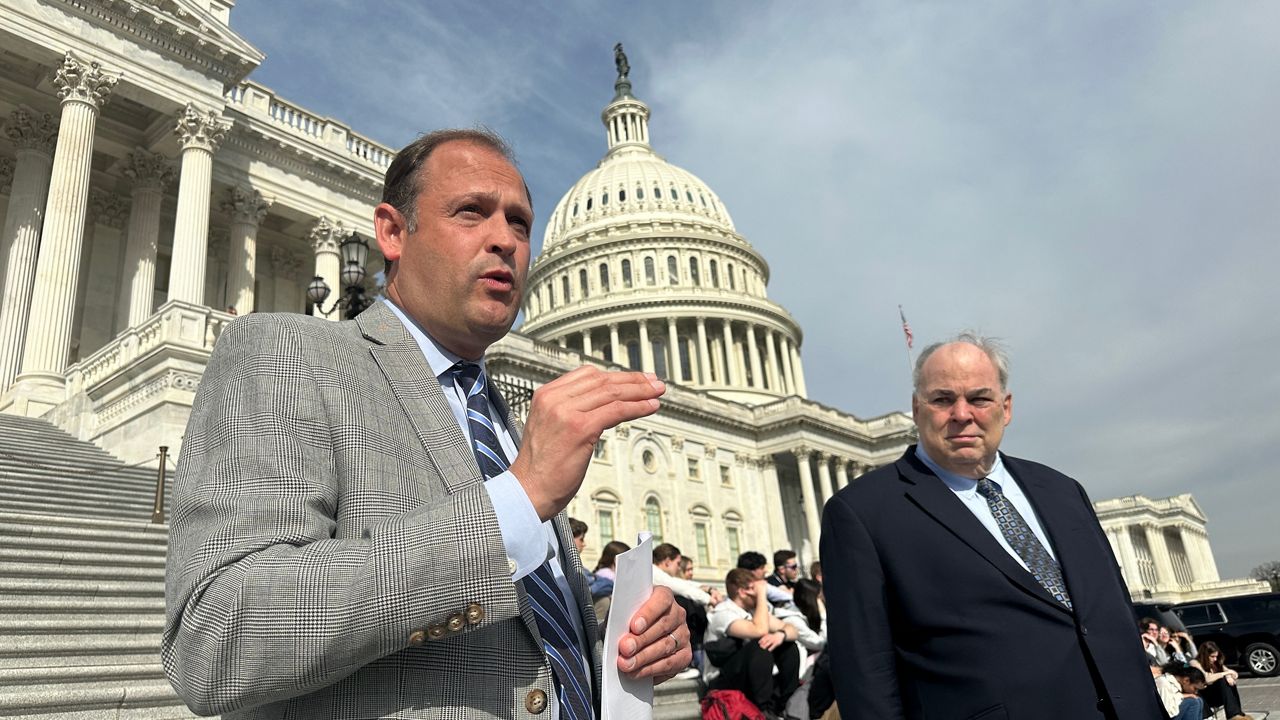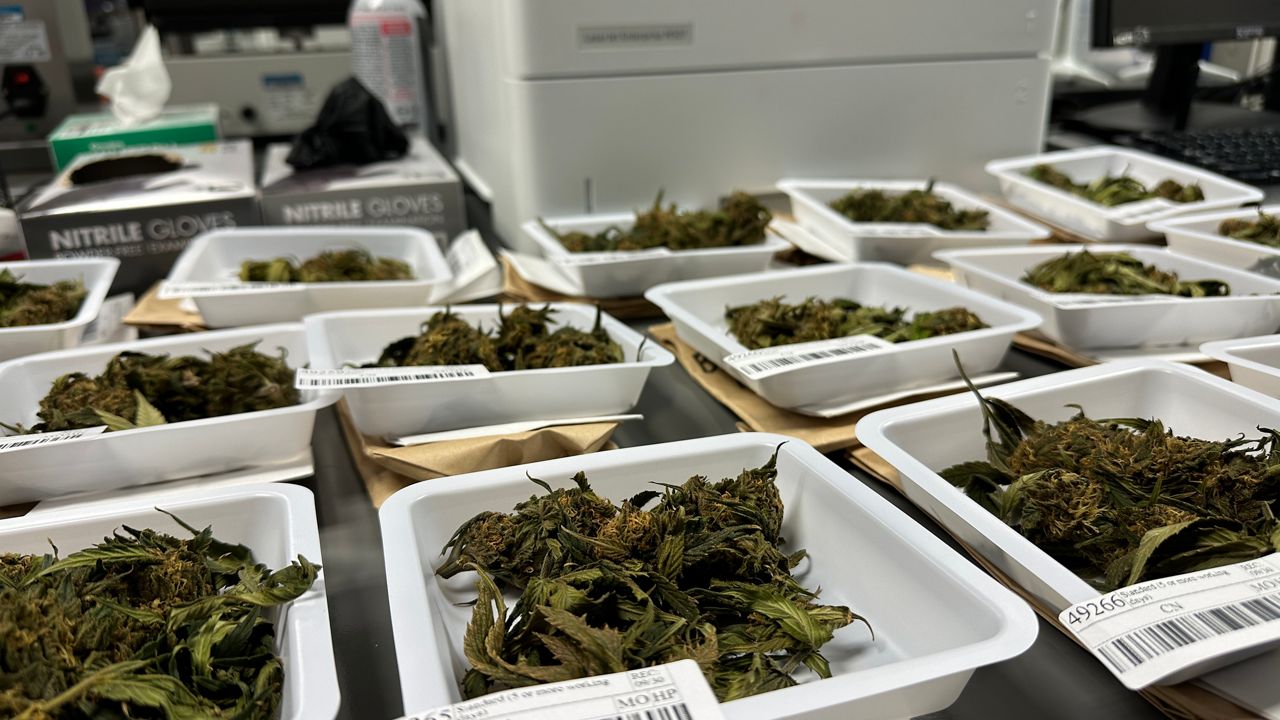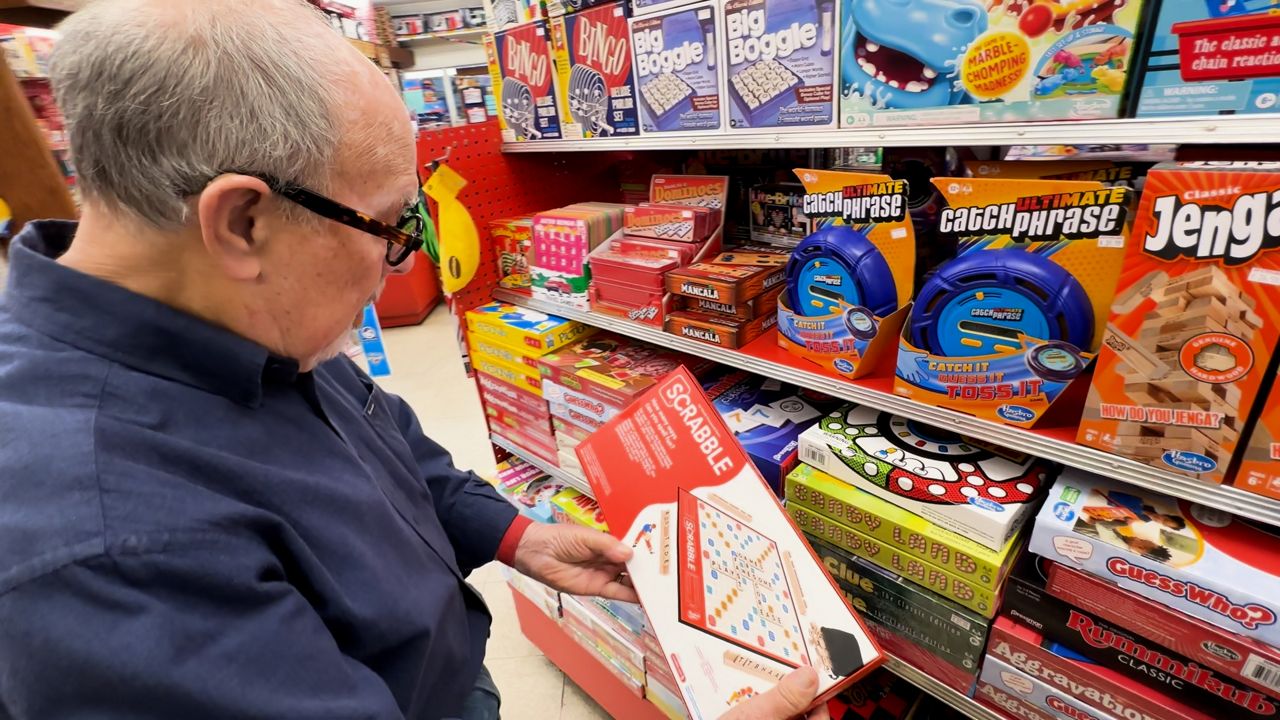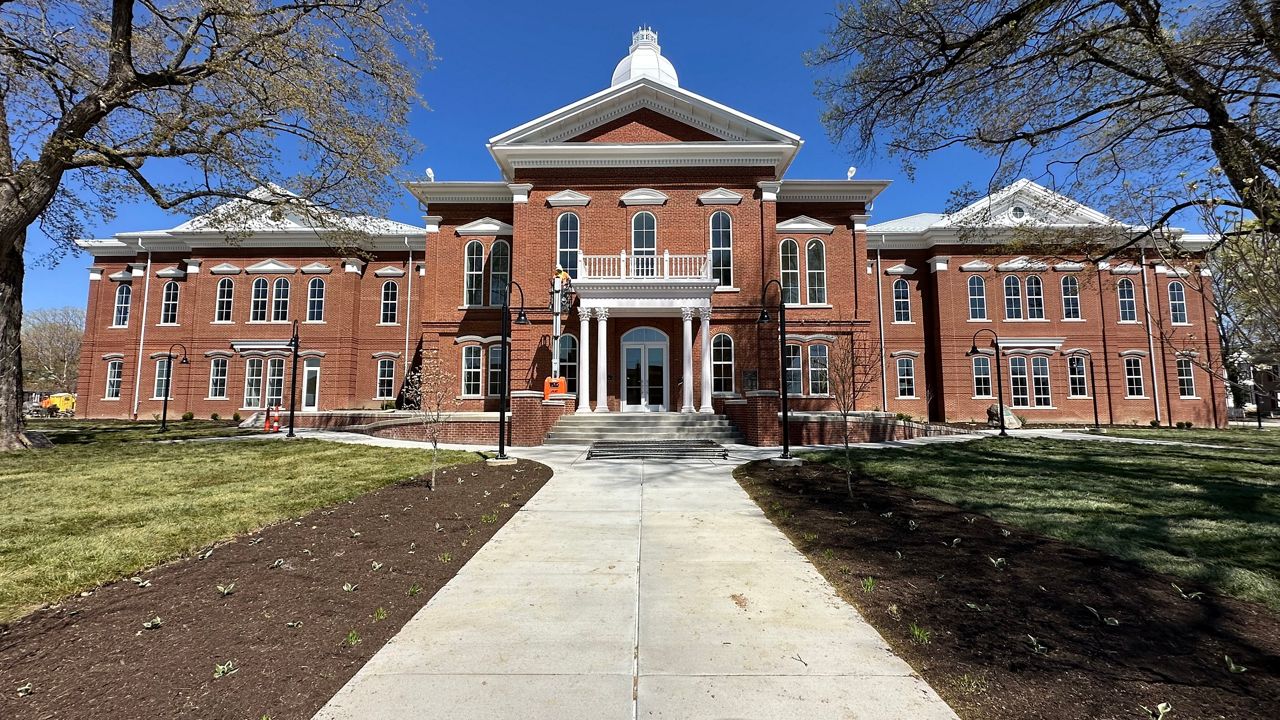LOUISVILLE, Ky. — Ten people from the Baltic states are visiting different states to learn about sustainable agriculture.
The visitors are in the United States through a U.S. State Department sponsored program called the International Visitors Leadership Program. The World Affairs Council of Kentucky and Southern Indiana are the partners for the visit in Kentucky.
On Monday, June 3, 2024, they made a stop at Capstone Farms in Henry County.
After checking out an aquaponics farm in Minnesota, the Baltic visitors stopped at a livestock farm in Kentucky.
“We just exchange our knowledges and we find out some new things,” said Kadri Kaugerand, head of Animal Welfare and Health Ministry of Regional Affairs and Agriculture of Estonia.

This is Kaugerand’s first time in the commonwealth.
“The weather is quite hot right now, but there are fields, there are animals. I do love animals and I think farming is very awesome,” she said.
As the group toured the farm and exchanged ideas, Kaugerand said Kentuckians are eager to learn new best practices.
“I have learned that the people here are they want to know, they want to be better, and I think it’s the most important thing that, you know, that this things what have bring us here won’t bring us any more further,” she said.
An Estonia farmer said his farm is similar, but the biggest difference is Estonia has environment restrictions they must follow.
“I guess you have more freedom in deciding what you do on your own land. Europe … As I said, like environmental restrictions are pretty strict and they’re getting stricter every year,” said Ragnar Viikoja.
One thing Kaugerand said Kentucky can improve on is tracking how farms are doing by keeping records about cattle health.
“Maybe you can do better management. Although what we can see here is it’s very, very good. So, I think a little bit more data and data analysis, I think it would be nice to know,” said Kaugerand.
David Neville has been hosting guests for at least 25 years at his farm. He estimates he’s had 450 visitors—but this is the first time he has had people from the Baltic states.
“When they go back to D.C. and have a debriefing and the questions are, what did you see? What did you learn? What was your favorite part? I want every visitor to always say my favorite part was the visitation or the when we went to Capstone Farms,” said David Neville, owner of Capstone Farms.
And now the Baltic visitors have a friend in Kentucky.
“I know that I have contacts when I need something from here, from the Baltic states, then I can phone or send an email and I can get answers,” said Kaugerand.
Their next stop is a dairy farm in Pennsylvania.
We reached out to the Kentucky Farm Bureau for a response regarding Kaugerand’s comments about how Kentucky can improve its farming and we will update this story when we hear.










